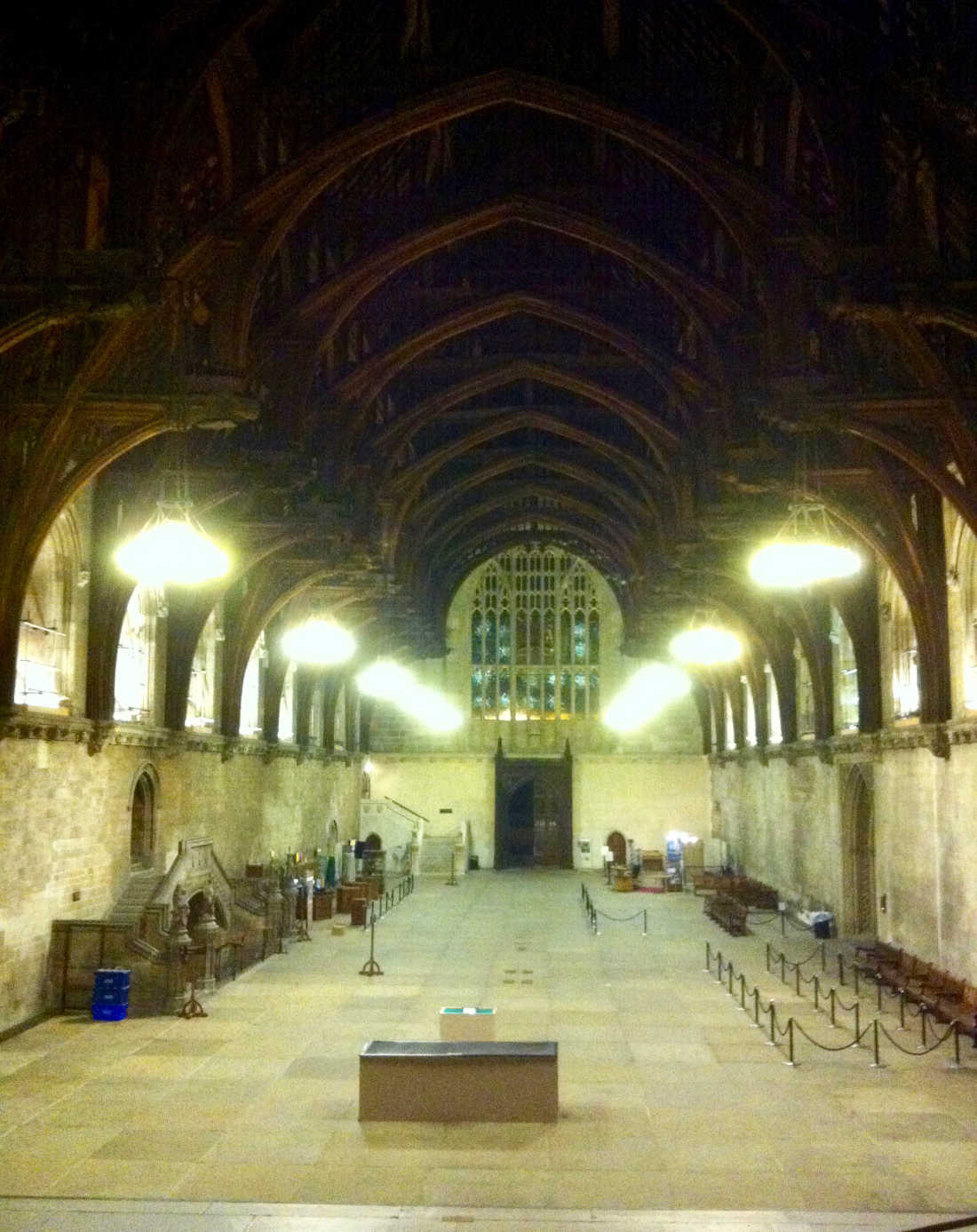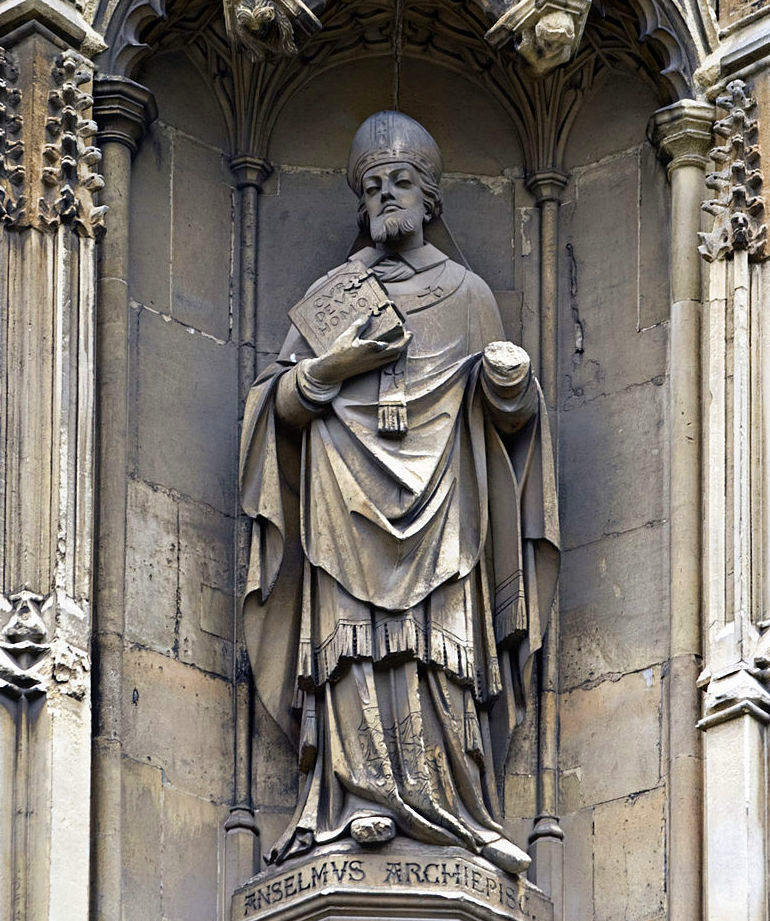Church and State
Who answers only to God?
The Customs of the Conqueror had given England a buffer from the upheaval of Gregory VII’s papacy. William’s view was that by virtue of the Conquest, he was supreme in England. He would pick senior churchmen and if, say, a new bishop wanted to receive his pallium - his robes and symbols of office - from the pope then they would have to get William’s permission first.
Pope Gregory wanted the church to control its own appointments. The monks of Canterbury, for example, should pick their archbishop, not the king. Those in the church should pledge allegiance to the pope. In Gregory’s world, spiritual power in the church starts to look much more like the temporal power of a king.
The status quo was never seriously challenged under the Conqueror. Partly due to his power, partly as Gregory’s campaign was still gathering a head of steam. There were also many who were at best lukewarm to Gregory. Archbishop Lanfranc of Canterbury was one of them. By Gregory’s death in exile many of his cardinals despised him, as did the Holy Roman Emperor Henry IV who sponsored a rival ‘anti-pope’, Clement III.
Rufus’ casual treatment of the church and its revenues after Lanfranc’s death may have done nothing to bolster support for his father’s settlement, but things came to a head in 1093 when Rufus finally filled the vacancy at Canterbury.
William Rufus had fallen ill in 1093. The Anglo-Saxon Chronicle reported that "everywhere he was reported dead". Meanwhile Rufus had taken steps to redeem himself, promising improvements, ‘good laws’, and allowing Anselm of Bec to be raised to Archbishop of Canterbury.
Anselm may well have been the choice of a penitent man. He was a reformer in the Gregorian camp and far from the practical administrator that Lanfranc had become. Rufus would have plenty of time to repent this one.
William, for his part, recovered. It seems fully, as the Anglo-Saxon Chronicle comments with a tone of some weariness that "When he recovered he did away with all the good laws he promised us earlier." He couldn’t do away with Anselm.
Anselm, for his part, claimed not to want the job. Thinking of William, he said:
You are trying to yoke together at the plough under one yoke a raging bull and an old and feeble sheep.
Anselm, Archbishop of Canterbury
Straight away this was disingenuous. While Lanfranc had worked together with both Williams and his predecessors had served the kings before them, there was no hint of the equality that you get from Anselm’s image of the two ploughing their furrow alongside each other. There is also an echo of an earlier archbishop, St Dunstan, who talked of how the Anglo-Saxon Witan would choose a king but then forevermore be yoked to his plough. Anselm’s image was of a spiritual leader to match William’s temporal rule. William Rufus was never going to settle for that.
Trouble flared when Anselm wanted to receive his pallium from Pope Urban II in Rome. Rufus refused, as was his right. Anselm claimed that he could not rescind allegiance he had already pledged to Urban before he came over to England. Allegiance came with obligations and rights on both sides. Once again, one man had two masters. Rather than the practical baronial response at the start of the reign, when those not in rebellion opted essentially to muddle through, Anselm’s grievance took on a legal tone.
Anselm wanted to hold a church council to debate the problem. Rufus refused. He also refused to return Canterbury lands that he had alienated to others during the vacancy.
The dispute took centre stage at the Council of Rockingham in 1095. Eadmer has Anselm’s view of his predicament:
So now all of you, but most of all my bretheren and fellow bishops, I pray and charge you that you first look diligently into this matter and then after the most careful consideration, give me, as you should, advice on which I may rely, so that, while not committing any breach of the obedience I owe the pope, I may at the same time not offend against the allegiance which I owe to my lord the king. To me it is a terrible thing to show disrespect to and disown the Vicar of St Peter; a terrible thing, too, to transgress the allegiance which under God I have promised to maintain to the king; terrible most of all to be told that is will be impossible for me to be true to one of these loyalties without being false to the other.
Anselm, Archbishop of Canterbury (as attributed to him by Eadmer)
Handwringing aplenty, but essentially what Anselm is presenting is a black and white choice.

William Rufus must have decided that the simplest option was to remove the problem. He claimed that the knights provided by Canterbury for his Welsh campaigns in 1097 were not up to scratch. The final straw which triggered Anselm’s departure into exile. There Anselm moved to Urban’s papal court where he was a the forefront of the reformist movement. He was also gaining experience and celebrity, arguing the Roman church’s position against the Greeks at the Council of Bari in 1098. The can may have been kicked down the road, but the fight would be tougher later on.
Urban’s crusade, meanwhile, was proving a success against the odds, taking Jerusalem in 1100. Duke Robert had acquitted himself well, and while there was limited English involvement Robert had been joined by Odo of Bayeux, who died in the east, and the English heir from 1066, Edgar Aetheling. Their return would bring burnished reputations.
These were problems William Rufus never had to face, however. William of Malmesbury picks up the story in 1100:
After dinner [Rufus] went into the forest, attended by a few persons; of whom the most intimate with him was Walter, surnamed Tirel, who had been induced to come from France by the liberality of the king. This man alone had remained with him, while the others, employed in the chase, were dispersed as chance directed. The sun was now declining, when the king, drawing his bow and letting fly an arrow, slightly wounded a stag that was passing; and, keenly gazing, followed it, still running, a long time with his eyes, holding up his hand to keep off the power of the sun’s rays. At this instant Walter, conceiving a noble exploit, which was while the king’s attention was otherwise occupied to transfix another stag which by chance came near him, unknowingly and with the power to prevent it, Oh, gracious God! pierced his breast with a fatal arrow. Walter immediately ran up, but as he found him senseless and speechless, he leapt swiftly on his horse, and excaped by spurring him to the utmost speed. Indeed there were none to pursue him: some connived on other matters. Some began to fortify their dwellings; others to plunder; and the rest to look out for a new king. A few countrymen conveyed the body, placed on a cart, to the cathedral at Winchester; the blood dripping from it all the way.
William of Malmesbury
This time we can be certain that an arrow felled a king at sunset. Hunting accidents were relatively common, however. William’s older brother, Richard, had been lost in the same way some years earlier. Even so, the lingering suspicion remained that foul play was involved and that Walter Tirel, the mercenary, had been put up to it. There was a beneficiary, after all. There was another brother, Henry, the youngest and the only one born after 1066. Henry had received a good sum of money on his father’s death in 1087 but little attention since.
He was evidently close by. Orderic records that ‘Henry galloped at top speed to Winchester castle where the royal treasure was and imperiously demanded the keys from their keepers as the lawful heir’. It was suspiciously convenient and quick.
As for William Rufus, he had been dealt a tough hand, but then again few monarchs aren’t. Perhaps inspired by his father, Rufus had deployed the force of his personality backed by as much money as he could lay his hands on. But it matters what that personality can be, not just how strong it is. A graceless king is unwelcome; an inconsistent king governing on a whim is only ever on borrowed time. As problems eddied around the king, Rufus’ answers to some made others worse. There are no signs that a breakthrough was just around the corner, if only he had lived.
William of Malmesbury has the last word:
Greatness of soul was pre-eminent in the king, which, in process of time, he obscured by extreme severity; vices, indeed, in place of virtues, so insensibility crept into his bosom, that he could not distinguish them. The world doubted, for a long time, which way he would incline; what tendency his disposition would take. At first, as long as Lanfrac survived, he abstained from every crime; so that it might be hoped he would be the very mirror of kings. After Lanfranc’s death, for a time, he showed himself so variable that the balance hung even between vices and virtues. At last, however, in his later years, the desire after good grew cold, and the crop of evil increased in ripeness: his liberality became his prodigality; his magnanimity pride; his austerity cruelty.
William of Malmesbury
For all his haste, the new king Henry I was saddled with a host of problems. He would set out to prove that the crown did indeed run in the family.
Bibliography
- The White Tower. Tower of London
- Westminster Hall. Houses of Parliament, London

